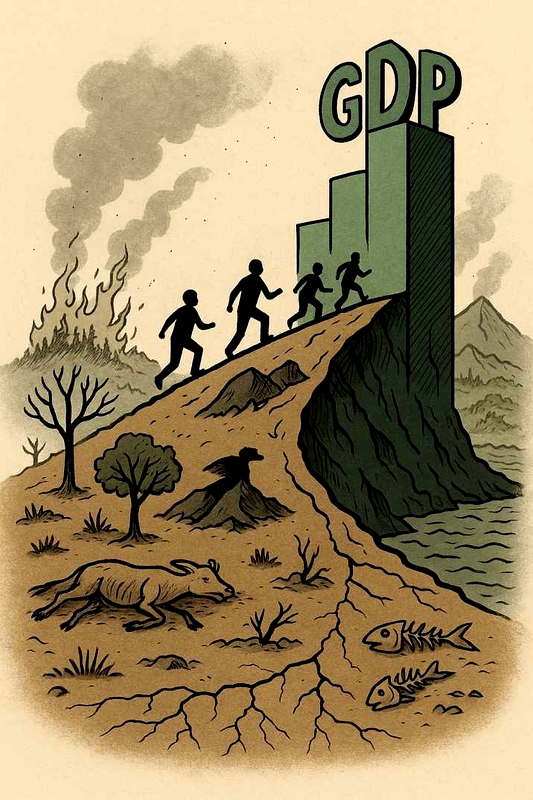🏠 / English blogs / 6
GDP: The Race That's Killing Nature
July 9, 2025, 5:15 p.m. Share it on WhatsApp
Every country today is on a relentless mission — to increase its GDP. It has become the benchmark of progress, the badge of honor for a nation’s growth. But have we ever stopped to question: what happens when every country chases the same goal?
If all countries work toward pushing their GDP upward, the global economic bar keeps rising. What used to be considered high GDP becomes average, and the race resets. Everyone runs harder. It’s a never-ending loop — growth chasing growth. But at what cost?
Unequal Grounds, Unequal Race
The truth is, not all countries begin this race on equal footing. The landscape, climate, environment, and resources differ vastly. Some nations are blessed with fertile lands and easy transport access. Others have hills, mountains, forests, or vast stretches of water — making industrial growth and export more difficult, sometimes impossible.
Yet, the pressure to “grow” doesn’t spare anyone. Countries rich in natural beauty — forests, rivers, biodiversity — are pushed into exploiting their own gifts. Trees are cut, rivers are dammed, mountains are dug out, all in the name of development and GDP.
When GDP Rises, Nature Falls
Every activity that boosts GDP — manufacturing, mining, infrastructure expansion — leaves a scar on nature. Air gets polluted, soil loses life, water becomes toxic. When a country proudly claims a booming GDP, it often means it has contributed significantly to environmental destruction — either directly, through its own industries, or indirectly, by setting a higher economic bar that other nations scramble to reach.
The Illusion of Progress (The World should re-Think)
It’s all maya — a grand illusion. GDP is a number. A virtual score. And in chasing that number, we are trading real, living systems — forests, rivers, animals, soil, and ultimately, human life.
Maybe it’s not your forest that’s burning. Maybe it’s not your soil that's turning barren. But it's happening somewhere, because GDP is global. The damage doesn't stay local. When one country races, others are forced to follow. And in this global race, nature is always the loser.
So, we must ask ourselves — is GDP truly a measure of progress, or a distraction from what really matters?

Last Updated on July 9, 2025, 5:15 p.m.